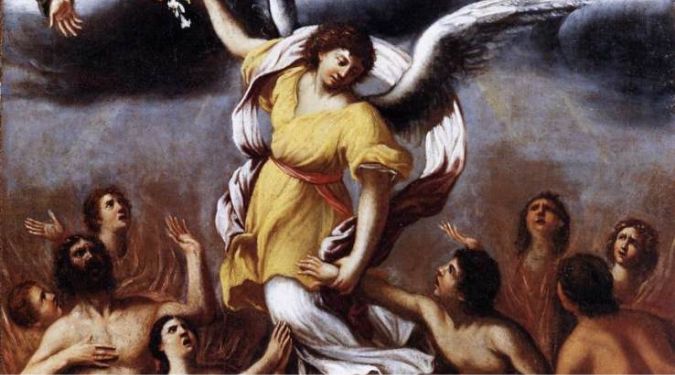With all the brouhaha surrounding Pope Francis’ Apostolic Exhortation, “The Joy of the Gospel”, especially his critique of capitalism, I thought it best to go back to the basics and learn about the fundamentals of Catholic Social Teaching. Just how should we apply the teachings of Jesus to the thorny and complex issues of social and economic injustice that we see in our modern world?
Some Authoritative Sources
The Church’s Social Teaching (or Doctrine) was crystalized by Pope Leo XIII in 1891, in his Encyclical, Rerum Novarum (“Rights and Duties of Capital and Labor” ), which he wrote to address the misery of the working class and social conflict that arose with the emergence of the industrial revolution and as a response to Marxism., which was gaining popularity at that time. The Church’s Social Teaching was further advanced by subsequent papal encyclicals, especially Pius XI’s Quadragesimo Anno (1931), John XXIII’s Mater et Magistra (1961), and John Paul II’s Laborem Exercens (1981) and Centesimus Annus (1991). The Fathers of the Second Vatican Council weighed in on the subject in their 1965 Pastoral Constitution on the Church in the Modern World, Gaudium et Spes. In 2004, the Holy See’s Pontifical Council for Justice and Peace published the Compendium of the Social Doctrine of the Church which nicely summarizes the Church’s authoritative teaching on this subject.
Some Basic Principals
Here are some of the primary principles of this social teaching:
- The Dignity of the Human Person – The dignity of the human person is rooted in his creation in the image and likeness of God.[1] It is necessary to “consider every neighbor without exception as another self, taking into account first of all his life and the means necessary for living it with dignity”.[2] Every political, economic, social, scientific and cultural program must be inspired by the awareness of the primacy of each human being over society.”[3] Their God-given dignity prevents us from using or disposing of others as objects.
- The Common Good – The common good encompasses both the spiritual and material good of people and is “the sum total of social conditions which allow people, either as groups or as individuals, to reach their fulfillment more fully and more easily.”[4] The spiritual aspect of the common good is often forgotten, but our ultimate fulfillment or common good is found in Jesus Christ.
- Subsidiarity -“A community of a higher order should not interfere in the internal life of a community of a lower order, depriving the latter of its functions, but rather should support it in case of need and help to coordinate its activity with the activities of the rest of society, always with a view to the common good.[5] “The principle of subsidiarity must prompt public authorities to seek conditions that encourage the development of individual capacities of initiative, autonomy and personal responsibility in citizens, avoiding any interference which would unduly condition business forces.”[6] Example: the State should not usurp the natural rights and responsibilities of individuals and families.
- Solidarity is basically fraternal love, as opposed to the class warfare espoused by Marxism. “The common path of individuals and peoples

Rembrandt. The Good Samaritan. 1633 towards an ever more committed unity..the bond of interdependence between individuals and peoples, which is found at every level.””[7] Individuals, classes, states and nations should, in fraternal love, work together for the common good. “Solidarity… is clearly seen to be one of the fundamental principles of the Christian view of social and political organization. “[7b] The Church considers solidarity to be a moral virtue, so there is a personal element to it: we each have the personal responsibility to take initiative for and with the poor, like the Good Samaritan.
- The Universal Destination of Goods – “God gave the earth to the whole human race for the sustenance of all its members, without excluding or favoring anyone. This is the foundation of the universal destination of the earth’s goods.”[8] This does not mean that every person will get an equal share of the earth’s resources, but each person cannot be denied what is needed for sustenance.
- The Right to Private Property – Pope Leo XII said, “…The first and most fundamental principle, therefore, if one would undertake to alleviate the condition of the masses, must be the inviolability of private property. ” and ” Private ownership, as we have seen, is the natural right of man, and to exercise that right, especially as members of society, is not only lawful, but absolutely necessary. “It is lawful,” says St. Thomas Aquinas, “for a man to hold private property; and it is also necessary for the carrying on of human existence.”and “since the right of possessing goods privately has been conferred not by man’s law, but by nature, public authority cannot abolish it.”[9]
- The Right to a Just Wage – Pope Leo XII said of employers, “His great and principal duty is to give every one what is just. ” He also says, “...the wage shall not be less than enough to support a worker who is thrifty and upright.” That is, so the workers, “may themselves share in the benefits which they create-that being housed, clothed, and bodily fit, they may find their life less hard and more endurable.”[10]
- The Right of Workers to Associate – Pope John Paul II said, “Pope Leo XIII’s Encyclical also affirms other rights as inalienable and proper to the human person. Prominent among these, because of the space which the Pope devotes to it and the importance which he attaches to it, is the ‘natural human right’ to form private associations. This means above all the right to establish professional associations of employers and workers, or of workers alone. Here we find the reason for the Church’s defense and approval of the establishment of what are commonly called trade unions: certainly not because of ideological prejudices or in order to surrender to a class mentality, but because the right of association is a natural right of the human being, which therefore precedes his or her incorporation into political society. Indeed, the formation of unions “cannot … be prohibited by the State”, because “the State is bound to protect natural rights, not to destroy them; and if it forbids its citizens to form associations, it contradicts the very principle of its own existence’.” [11]
- Preferential Option for the Poor – Pope Leo XII said, “Nay, God Himself seems to incline rather to those who suffer misfortune; for Jesus Christ calls the poor “blessed”;(20) He lovingly invites those in labor and grief to come to Him for solace;(21) and He displays the tenderest charity toward the lowly and the oppressed.” Pope John Paul II called this “a special form of primacy in the exercise of Christian charity.” [12]
The first four principles are fundamental, but all of the principles (and this is not an exhaustive list) balance each other remarkably. For example, the principle of subsidiarity complements human dignity, and prevents a dangerous collectivism. Likewise, solidarity supports the pursuit of the common good and prevents class warfare. Similarly, the principle of the Universal Destination of Goods and the Right to Private Property balance each other.
The Church’s social teaching offers a set of powerful and balanced principals and guidelines in applying the teachings of Christ to the problems of our age and in evaluating our public policy and private efforts to bring social justice to our world.
References
[1] Catechism of the Catholic Church 1700
[2] Gaudium et Spes 27
[3] Compendium of the Social Doctrine of the Church (2004) 132
[4] Gaudium et Spes, 74 § 1
[5] Catechism of the Catholic Church 1883, Centesimus Annus 48 § 4, Pius XI, Encyclical Letter Quadragesimo Anno 80
[6] Compendium 354
[7] Compendium 192
[8] Centesimus Annus 31


